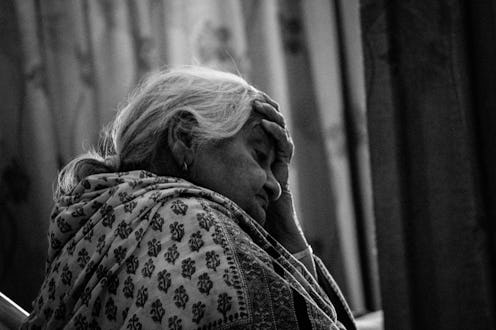
It looks like one really is the loneliest number: According to a new study conducted by the University of Chicago, loneliness is bad for your health later in life. The study looked at more than 2,000 people over the age of 50, determining whether they were lonely or not. It found that being lonely can bring on all kinds of health issues — and in extreme cases, it can even increase the risk of premature death by 14 percent.
According to John Cacioppo, a psychology professor at the University of Chicago and the lead scientist behind the study, people experiencing extreme loneliness suffer from disrupted sleep, elevated blood pressure, increased levels of stress hormones, and increased depression. It also affects the body’s immune system, making it less able to ward off illness; there are drastic differences in the rate of decline for both physical and mental health between lonely and socially connected older people. The fact that loneliness generally lowers overall feelings of well-being comes as no surprise.
Here, have some cats hugging. It will make you feel better:
Anyway!
This might be bad news for those of you who are planning on getting a house in the Florida Keys or wherever when you retire. Says Cacioppo, “We have mythic notions of retirement. We think that retirement means leaving friends and family and buying a place down in Florida where it is warm and living happily ever after. But that’s probably not the best idea.” Why not? He explains, “Retiring to Florida to live in a warmer climate among strangers isn’t necessarily a good idea if it means you are disconnected from the people who mean the most to you.” In fact, Cacioppo has found that people who live near friends and continue to interact with former coworkers after retirement are considerably less lonely — no matter where in the world they are. “I’ve done studies in Europe and China,” says Cacioppo, “and we are not seeing any differences, regardless of where we look.”
Since we’re talking about retirement, though, I’d be interested to see what a follow-up study might reveal. 65 is apparently no longer the ideal retirement age, so are older adults who aren’t retired affected in the same way? And on the other end of the spectrum, you’ve got people like Mr. Money Mustache, who managed to retire along with his wife at the mere age of 30. Would the health risks associated with older, lonelier adults present earlier in those who retire early? Food for thought, I think.
Image: Shashank Kumawat/Pexels